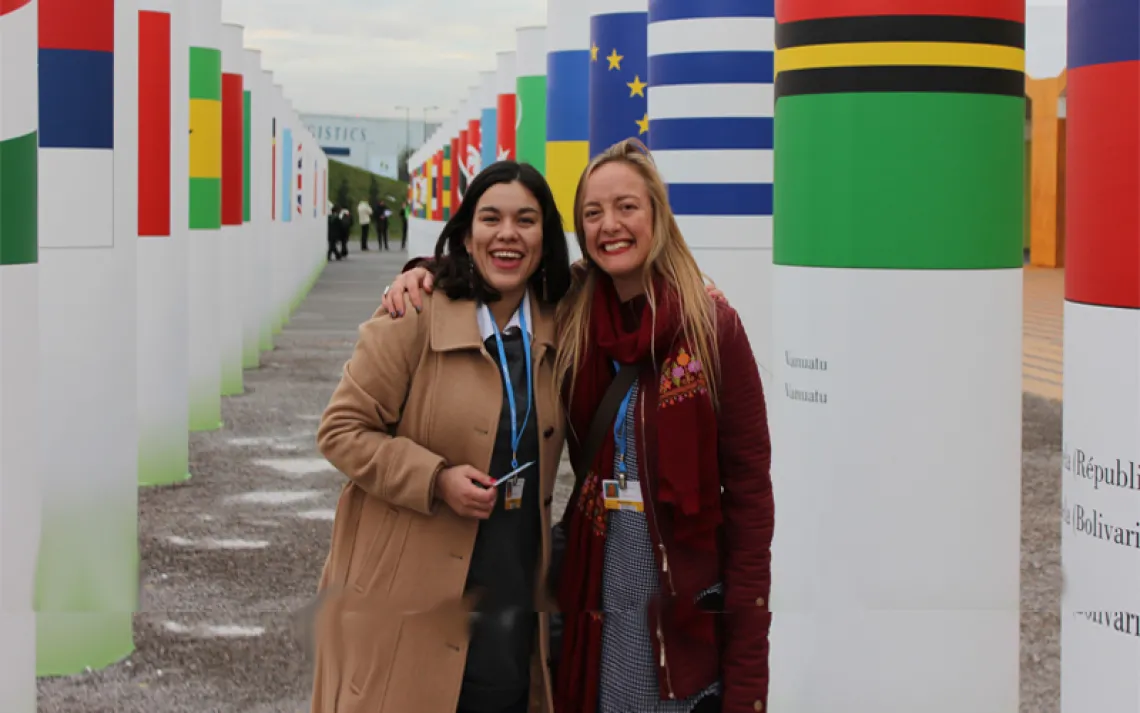America Lutz Ley in Paris, France

ALRS PhD candidate America N. Lutz Ley was part of the delegation from the University of Arizona attending the 21st Conference of the Parties (COP21- CMP11) held in Paris, France, from November 30 through December 11, 2015. The Conference of the Parties is a yearly meeting organized under the auspice of the United Nations Framework Convention for Climate Change (UNFCCC) since 1995, when the COP started in Berlin, Germany. In 2005 the Conference of the Parties was joined by the Meeting of the Parties to the Kyoto Protocol (CMP). The objective of the COP-CMP Conferences is to assess the advances towards the goals of mitigation and adaptation to climate chan ge, and to set the legal and financing conditions for mechanisms to improve human response to socio-economic, climatic, and ecological challenges derived from these global changes. The COP21-CMP11 was a milestone in the history of international climate negotiations because, for the first time, a legally binding agreement was reached to keep temperature rise below 2° centigrades. The final agreement will be signed this year on April 22 in New York, but up to date almost 200 countries have adhered to it.
America Lutz’s trip was sponsored by the University of Arizona’s Institute of the Environment. She attended the first week of the conference and collaborated in the promotion of UA’s climate and environmental science and the creation of networks with other scientist and representatives of NGOs attending the conference. “… I am very grateful for this experience, but I also recognize the complexity of the negotiations. To fully understand and follow discussions you need to be aware of the history of agreements from previous conferences, because this is a progressive process that advances each year” she says. America, who is also pursuing a minor in Global Change and working on her dissertation on adaptation to global change in rural communities of arid northwest Mexico, adds that “the technical level of the issues, together with the great variety of participants in multiple groups working on different aspects of the agreement are things that, even if necessary, could be overwhelming for beginners…”.

“One of the things I realized from being in the conference is that real decision-making capacities are restricted to the top leaders and some NGOs representatives from each country, and the rest of us, as observers, can contribute with commentaries or questions with no guarantee of those being addressed. At the end the most critical part is achieving that scientific discoveries are taken into account in the negotiations, that the biggest contributors to CO2 emissions assume their part of the responsibility, and that values of equity and climate justice are pursued beyond technical considerations”. “Looking at the nature of the conference and the type of things being discussed, one can understand why it is so difficult to communicate environmental and climate change to the public, and engage them in this discussion… it can be very frustrating. However, at the same time that huge amount of energy and the commitment of so many people around the world to address these challenges gives me hope of our human capacity to actually deal with this”, she finalizes.
